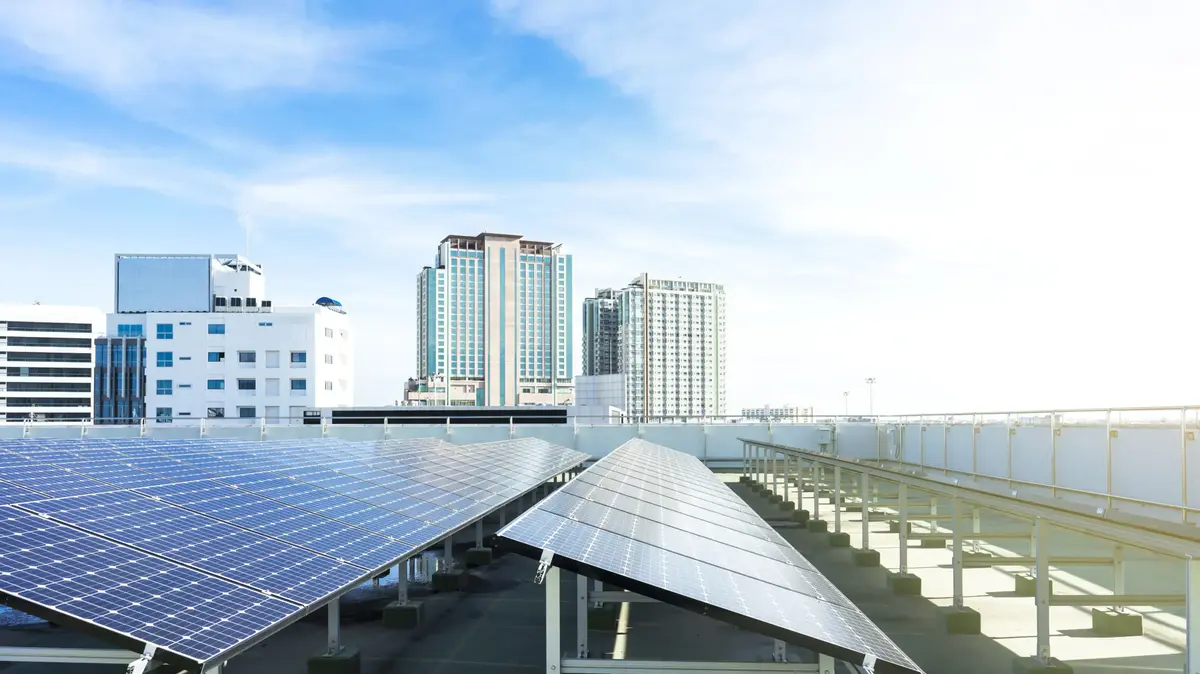Sentence
Real estate and real estate
Do's and don'ts: Everything important to know about renting a property to solar energy entrepreneurs
Did you receive an offer from an entrepreneurial company that is interested in renting your roof, building, or land for installing solar power generation systems?
Do not settle for the "standard" lease agreement made on its behalf.
Instructions
Tags
solar energy
Adv. Tomer Sidon, in collaboration with Zap Legal
Sunday, 01 November 2020, 14:14
Share on Facebook
Share on WhatsApp
Share on general
Share on general
Share on Twitter
Share on Email
Solar energy (Photo: ShutterStock)
In recent years, business cooperation has been increasing between entrepreneurial companies engaged in the field of renewable energy, and in particular solar energy, and property owners who rent to roofers of buildings and sheds, as well as land rights.
Roofs, sheds and land are used by energy entrepreneurs to install photovoltaic (PV) systems for electricity generation and generation.
This is a thriving field, which is expected to develop over time, and which may yield great benefits to both parties - the entrepreneurial company and the property owners - especially when the lease agreement undergoes close legal control.
More on Walla!
NEWS
The recordings proved: the manager at the insurance agency did not sexually harass the employee
To the full article
What real estate assets might wink at solar energy entrepreneurs?
In most cases the developers are the ones who turn to the property owners.
Many of the property owners referred to are from the agricultural sector, such as, for example, kibbutzim or moshavim, landowners and farms that own barn or coop sheds, or those that own large areas of land.
In urban localities, too, there are suitable real estate properties whose owners may receive such an application, such as, for example, buildings in industrial, storage, employment and commercial areas with roofs in large and vacant areas.
Why not settle for the rental agreement proposed by the developer?
Along with the application, the property owners also receive rental agreements on behalf of the developers.
Typically, these are multi-page agreements and clauses, which are formulated by the developers and professionals on their behalf, and which take care first and foremost of the interests of the developers.
There are property owners who believe that in any case the area or roof of the building stands empty in their desolation, and they have nothing to lose so to speak.
Therefore, they do not always pay attention to the meanings, commitments and long-term and weighty limitations that appear in the agreements formulated by the developers, and are quick to sign them inadvertently.
In practice, property owners may find out in retrospect that they have signed an agreement that imposes obligations and financial costs on them that they did not intend to incur.
What are the obligations that may appear in a lease agreement on behalf of the developer?
First, under many agreements written by developers, property owners are required to impose various restrictions on the property and its use, as well as with respect to its sale or encumbrance.
These restrictions may be in effect for long periods (sometimes up to 25 years!).
In addition, property owners are sometimes required to make statements and undertake various obligations regarding the state of rights in the property, its physical and engineering condition, the permits it has and its designation, and other priest and priesthood statements that are not always consistent with actual situation, and may have financial implications.
Finally, property owners may be required under the agreement to produce permits and permits from various authorities in connection with the property (local authority, planning and construction committee, IEC, Israel Land Authority, etc.).
These approvals may also have heavy implications and financial costs, and the wording of an agreement made on behalf of the developer may impose the same obligations and costs on the property owner.
What risks may be caused to the property owner as a result of a "standard" agreement?
It often happens that the developer does not finance the project himself, so later on the property owner will be required to sign additional obligations to a financing entity, or to deal with a third party.
It is possible that there will be property owners who will say to themselves, in spite of everything - the developer has promised that he will carry out and finance everything, and I am not responsible for that.
Well, when one reads the fine print in rental agreements formulated by developers, one tends to realize that this is not always the case.
For example, it often happens that the developer does not finance the project himself, so later on the property owner will be required to sign additional obligations to a financing entity, or deal with a third party such as banks, financial institutions, or God forbid a receiver or liquidator if the developer gets into difficulties.
Entrepreneurs, for their part, usually reserve for themselves, under the same agreements, the right to "exit" or sell the solar systems to a third party, and to transfer to that third party also rights to use the roof or land.
In such cases, property owners may find themselves with a new and unfamiliar "tenant" who will be given the right to use the property for a long period of time.
Why is it important to get legal advice from a lawyer who is in the field of solar energy?
In this type of engagement one must take into account legal, proprietary, planning, financial aspects as well as safety, insurance and the like aspects.
The few examples mentioned illustrate, at the tip of the fork, only some of the many components and aspects that need to be considered when it comes to a complex engagement that may take half a century.
A lawyer proficient in the field will review the agreement made by the developer, examine and explain its financial implications, as well as the obligations that appear in it, and help rephrase its clauses as necessary.
In conclusion, property owners, who will sign with solar companies entrepreneurs on lease agreements that have been made correctly and properly, may generate handsome profits, and over a long period of time.
In order to reduce risks and "surprises", and increase the chances of enjoying a stable income over many years, they must conduct themselves intelligently from the beginning of the negotiations and before signing the agreement, while receiving professional legal advice and guidance.
Adv. Tomer Sidon, specializes in commercial law, agricultural sector, contracts and transactions in the field of renewable energy
Phone:
050-3942484
Article courtesy of Zap Legal The
information presented in the article does not constitute legal advice or a substitute for it and does not constitute a recommendation for taking or avoiding proceedings. The person appearing in the article does so at his own risk
Share on Facebook
Share on WhatsApp
Share on general
Share on general
Share on Twitter
Share on Email





/cloudfront-eu-central-1.images.arcpublishing.com/prisa/M2S3AFJ6F5EFJLWTULBFKAQJWQ.jpeg)








/cloudfront-eu-central-1.images.arcpublishing.com/prisa/EXJQILQR5QI7OMVRTERD7AEZAU.jpg)